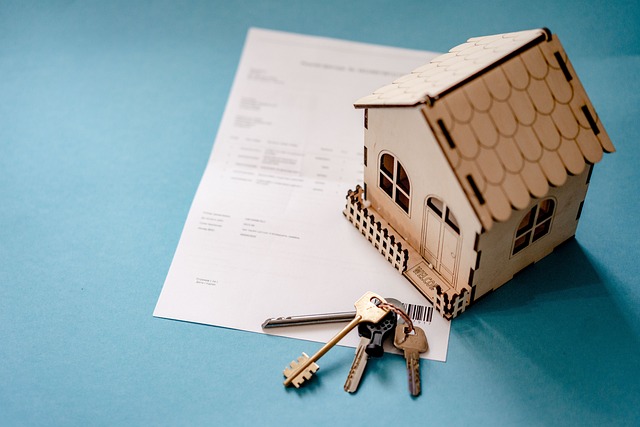When embarking on a home renovation project, it's essential to carefully select a contractor with the right combination of expertise, licensing, and experience. A qualified contractor not only holds the necessary licenses, ensuring compliance with local building codes and standards, but also has a proven track record in residential renovations, which can be verified through their past projects and client testimonials. It's crucial to evaluate multiple detailed proposals from these contractors, focusing on the specifics of their work scope, materials, timelines, and contingency plans. Transparent pricing with itemized breakdowns of labor and material costs helps in making informed decisions that align with your budget and renovation goals. Effective communication and problem-solving skills are vital for navigating any unforeseen issues during the project. Lastly, a comprehensive contract is indispensable, covering all aspects of the work, payment schedules, conflict resolution, and ensuring adherence to quality standards and timelines. This rigorous approach to home renovations, centered around expert contractor selection and thorough planning, sets the stage for successful and high-quality outcomes in your renovation project. Keyword: Home Renovations.
Embarking on a home renovation project can transform your living space and enhance your quality of life. Selecting the ideal contractor is pivotal for the success of such ventures. This comprehensive guide navigates you through the essential steps to choose the right professional for your renovation endeavor, ensuring that your investment yields both aesthetic and functional satisfaction. We’ll explore project scopes, objective setting, researching credible contractors, evaluating their track records, understanding proposal nuances, effective communication strategies, and legal considerations before finalizing your partnership. With the right approach, your home renovation can be a seamless and rewarding experience.
- Understanding Your Renovation Project Scope and Objectives
- Researching Potential Contractors: Licenses, Experience, and Specializations
- Evaluating Contractor Track Records and References
- Assessing Proposals and Pricing Strategies
- Interviewing Contractors: Communication, Transparency, and Problem-Solving Approach
- Finalizing the Contract: Legal Considerations and Project Agreement Terms
Understanding Your Renovation Project Scope and Objectives

When embarking on a home renovation, clearly defining the scope and objectives of your project is paramount for a successful outcome. Begin by outlining the extent of the work to be done; this includes identifying each space that will undergo renovations and the specific changes you envision. Are you looking to expand, reconfigure the layout, or update certain elements? Detailed planning will help you visualize the transformation and communicate your expectations effectively to potential contractors.
Once the project scope is established, align your objectives with this framework. Your goals might range from increasing your home’s value to improving functionality, enhancing aesthetics, or addressing necessary repairs. It’s essential to prioritize these goals and ensure they are feasible within your budget and time constraints. A well-defined scope and clear objectives will facilitate finding the right contractor who can translate your vision into reality through skilled home renovations. This clarity not only streamlines the selection process but also sets the stage for a collaborative partnership with a contractor who understands exactly what you need and can deliver results that meet or exceed your expectations.
Researching Potential Contractors: Licenses, Experience, and Specializations

When embarking on a home renovation project, selecting the right contractor is pivotal to achieving successful outcomes. Thorough research forms the bedrock of this selection process. Prospective clients should begin by verifying that potential contractors hold valid licenses as required by state or local regulations. This ensures a level of professionalism and accountability in their work. Licenses also attest to the contractor’s adherence to building codes and standards, which is crucial for the safety and structural integrity of your renovation.
Beyond licensing, examining a contractor’s experience and specializations can significantly influence the quality and efficiency of your project. A seasoned contractor with expertise in home renovations will bring a wealth of knowledge to the table, from design to execution. Their past projects serve as tangible proof of their capabilities, so it’s beneficial to review their portfolio or case studies. Look for contractors who have experience with renovations similar to your project, whether it’s kitchen remodels, bathroom updates, or whole-house overhauls. Their specialized skills and familiarity with the challenges specific to such renovations can be instrumental in navigating potential obstacles and enhancing the end result. By focusing on contractors who specialize in home renovations and have a solid track record of successful projects, you increase the likelihood of a smooth, high-quality renovation experience.
Evaluating Contractor Track Records and References

When embarking on a home renovation project, assessing a contractor’s track record is paramount to ensure the success and quality of your investment. A contractor’s history in home renovations serves as a testament to their expertise and reliability. Prospective clients should scrutinize past projects similar to their own, focusing on the contractor’s ability to deliver what was promised. This involves reviewing a portfolio of completed work, which can often be found on the contractor’s website or social media platforms. It is also advisable to request and verify references from previous clients who have undergone similar renovations. These references can offer firsthand accounts of the contractor’s work ethic, timeliness, problem-solving skills, and how they handle unforeseen challenges during a project. Engaging in conversations with these references allows you to gauge the contractor’s professionalism and the quality of their home renovations, providing valuable insights that contribute to making an informed decision.
Assessing Proposals and Pricing Strategies

When embarking on a home renovation project, meticulously assessing contractor proposals and pricing strategies is paramount to ensure the best outcome for your investment. Begin by collecting detailed proposals from multiple contractors. These should outline not just the scope of work but also the timeline for completion, materials to be used, and any contingencies that may arise during the project. Compare these proposals side-by-side, focusing on the specifics rather than the overall cost alone. Look for transparency in pricing, with a clear breakdown of labor, materials, and overhead costs.
Evaluate each proposal’s inclusivity; ensure that all necessary components of your renovation are covered without hidden fees. Consider the pricing strategy each contractor employs – some may offer lower initial costs but cut corners on materials or labor, while others might provide a higher upfront cost with a commitment to quality and detail. It’s crucial to align with a contractor whose pricing reflects both your budgetary constraints and your desire for a high-quality renovation. By carefully analyzing proposals and understanding the associated costs, you can make an informed decision that will lead to successful home renovations tailored to your needs and expectations.
Interviewing Contractors: Communication, Transparency, and Problem-Solving Approach

When embarking on a home renovation, the selection of a competent contractor is paramount to ensure successful outcomes. Interviewing potential contractors is an essential step that allows homeowners to assess their communication skills and problem-solving approaches. Effective communication during the planning phase sets the foundation for the entire project, ensuring that expectations are aligned and understood by both parties. A contractor who actively listens, articulates ideas clearly, and responds promptly to inquiries is more likely to manage your renovation with minimal misunderstandings or conflicts. Their transparency in discussing project timelines, potential setbacks, and the rationale behind certain decisions further underscores their commitment to maintaining an open dialogue throughout home renovations.
Moreover, a contractor’s adeptness at problem-solving is critical when unforeseen issues arise. A seasoned professional will have encountered a variety of challenges in past projects and will approach each new scenario with innovative solutions that align with your project’s objectives. Their ability to anticipate potential problems, propose viable alternatives, and implement effective strategies demonstrates their expertise and dedication to the successful completion of your renovation. This proactive problem-solving approach can save you time, money, and stress by mitigating risks and ensuring that your home renovation project runs as smoothly as possible.
Finalizing the Contract: Legal Considerations and Project Agreement Terms

When finalizing the contract for your home renovation project, it’s imperative to address all legal considerations and project agreement terms with precision. A well-crafted contract serves as a safeguard for both parties involved, outlining the scope of work, materials to be used, timelines, payment schedules, and dispute resolution mechanisms. Ensure that the contract includes detailed descriptions of the renovation work, including specifications for each component of the project. This clarity helps prevent misunderstandings and ensures that the end result aligns with your vision. Additionally, stipulate the quality standards expected, as well as the timeline for project completion. Payment terms should be clear, detailing the schedule of payments based on milestones achieved, to ensure progress is tracked and funds are disbursed fairly.
Furthermore, the contract must cover liability issues, including warranty and insurance details. It’s crucial that both parties understand their responsibilities regarding permits, building codes, and zoning laws that govern home renovations. Include provisions for change orders, specifying how variations to the original plan will be handled, with clear processes for adjustments in scope, cost, and timeline. Lastly, establish a protocol for project closeout, including final inspections, punch lists, and the process for handling any remaining balance or outstanding items. By addressing these aspects in your contract, you lay a solid foundation for a successful home renovation partnership, ensuring that all legal considerations are covered and both parties are protected.
Selecting a contractor for your home renovation project is a pivotal decision that can significantly influence the outcome of your investment. By thoroughly understanding your project’s scope and objectives, researching licensed and experienced professionals with relevant specializations, evaluating their track records through references, assessing detailed proposals and pricing strategies, engaging in insightful interviews to gauge communication, transparency, and problem-solving skills, and ensuring all legal considerations and project agreement terms are clearly outlined in a contract—homeowners can confidently embark on their renovation journey. Remember, the right contractor aligns with your vision, timeline, and budget, transforming your space into a functional and aesthetically pleasing environment that complements your lifestyle. Home Renovations are not just about altering the physical structure; they’re about creating a space that reflects your personal taste and enhances daily living. Choose wisely to ensure your project’s success.



